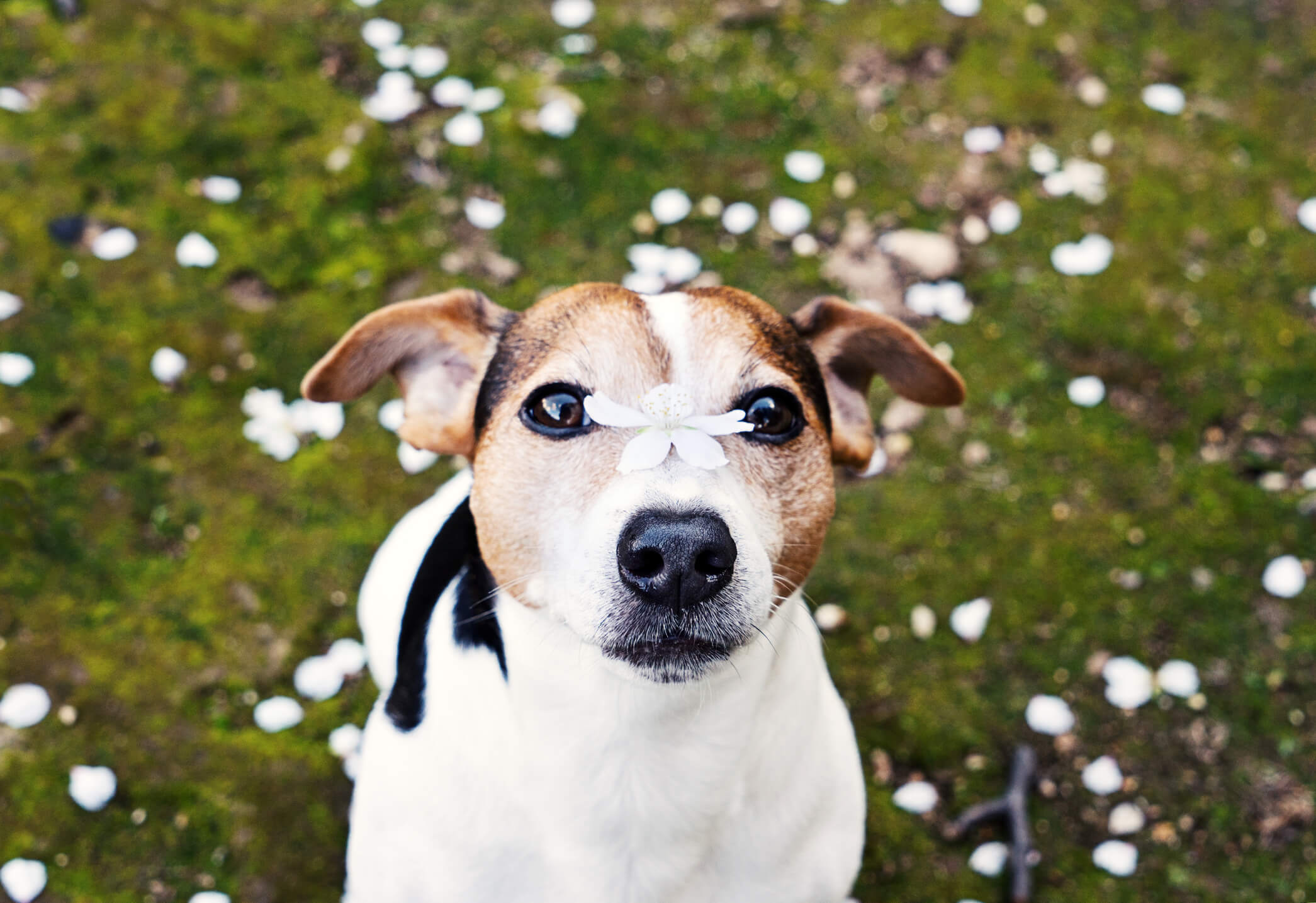
Why Spring is the Most Important Season for Your Allergic Pup's Immune System
Every dog parent should factor immune health into their pup’s lifestyle. A strong immune system is important year round, but it becomes even more crucial during springtime.
Grass, mold and pollen send your dog’s immune system into overdrive. This is especially true for dogs who have a history of dealing with seasonal allergies. Muddle no more! With the help of some daily habits, your allergic pup can romp outdoors all they want.
Spring woes that trigger allergies
Many dogs are afflicted with seasonal allergies. This means the immune system has wrongly identified harmless substances as a threat to your pup’s health. When the dog comes into contact with a specific allergen, their body triggers an intense immune response. The bloodstream gets pumped with immune cells that seek to attack environmental substances like grass, mold and pollen. Allergic reactions often cause sneezing, watery eyes and itchy skin.
Spring can make seasonal allergies even worse. It’s the time of year when everything starts to bloom. Pollen counts skyrocket due to blossoming flowers in trees and garden beds. All those April showers have helped the grass grow back in full force. Spring growth means there’s a high concentration of allergens circulating in the air. These few months are quite grueling for pups with seasonal allergies!
To make matters worse, dogs spend a lot more time outdoors in the spring. Warm temperatures mean more trips to the beach, nature trails and dog park. Owners want to get out of the house and enjoy the nice weather. Little do they know, their canine companions are suffering from allergies during these outdoor excursions. Some dogs get round-the-clock exposure to environmental allergens because their owners like to keep the windows open for some fresh air. Constant exposure really takes a toll on the immune system.

How to boost your pup’s immune system
To relieve your pup’s allergies, look no further than the immune system. Allergic reactions stem from an overactive immune response to environmental substances. Dogs with healthy immune systems experience less frequent and less severe allergic reactions. Here are some lifestyle and dietary habits to help bolster your allergic pup’s immune health.
- Daily exercise: Physical activity can help your dog shed extra pounds. Maintaining a healthy weight is essential for the immune system. Body fat releases inflammatory hormones that can exacerbate allergy symptoms. Inflammation is the main culprit behind sneezing and itchy skin rashes. Fat-burning exercises can reduce inflammation and alleviate some of your pup’s springtime discomfort. In addition to a daily walk, get their heart pumping with an intense game of fetch or keep-away.
- Massages: Massages indirectly boost the immune system by providing stress relief. Stress can weaken the immune system and make allergy symptoms even worse. Gentle, circular motions help relax your dog, and massaging them on a regular basis will improve their overall mental wellbeing. Increase the effectiveness of massages by creating a stress-free environment at home. While a massage won’t cure seasonal allergies, it lays a solid foundation for your dog’s immune health!
- Grain-free diet: Many commercial dog foods are made with grain fillers. A large portion of the dry kibble contains these fillers to make up for the lack of nutritional content. Grain is a form of starch that promotes inflammation throughout the body, which may worsen allergic reactions. Look for grain-free dog food that’s high in protein, vitamins and minerals. Removing starch from the diet may lower inflammation and improve seasonal allergies.
- Fish oil supplements: Fish oil is a great source of omega-3 fatty acids. This essential compound has anti-inflammatory properties that control immune responses to environmental allergens. When taken on a daily basis, fish oil supplements can lessen the severity of allergic reactions. You can also add more omega-3 fatty acids by feeding your dog cold-water fish like salmon, cod and tuna. As always, consult a vet before incorporating supplements into your dog’s diet. They can recommend trusted brands and the correct dosage.
- Turmeric: Besides adding flavor to dishes, this spice is praised for its ability to reduce inflammation. Turmeric prevents inflammatory responses by controlling cytokine production. Cytokines are immune cells that flood the body when your pup comes into contact with allergens. Dogs tolerate turmeric pretty well, so you can sprinkle a tiny bit directly onto their regular food.

Allergic pups aren’t doomed to suffer through spring. They will always have seasonal allergies, but there’s still a lot you can do to alleviate the sneezing, hacking and itching. Stay in tune with your dog’s immune health and care for their allergy symptoms as much as your own. A strong immune system will let your pup frolic through the flowers without a care in the world!


